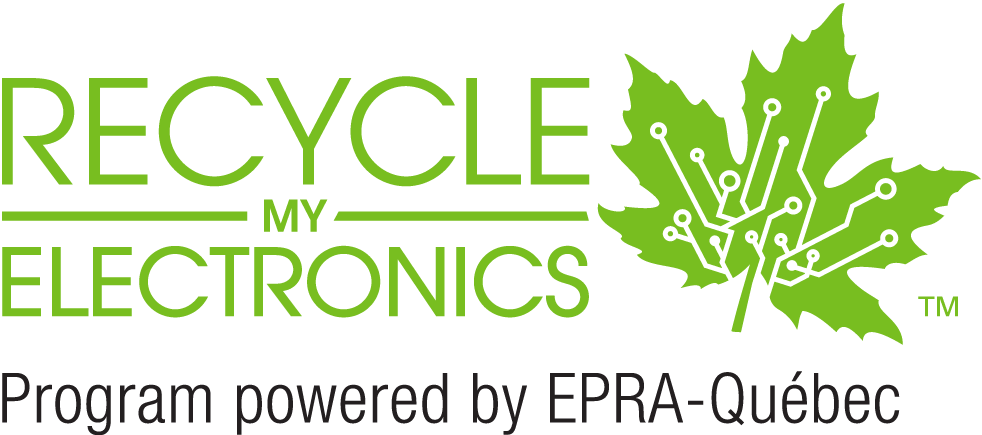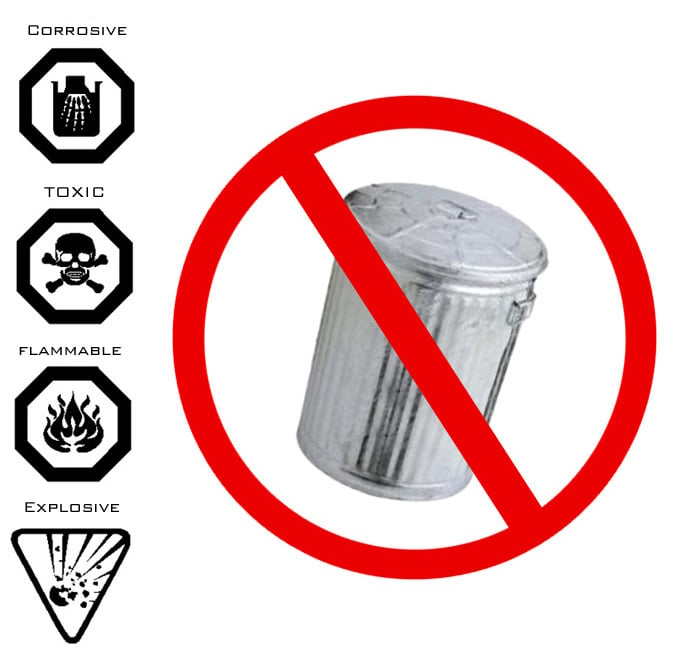
Household Hazardous Waste
Services to citizens
- Legal Affairs
- Animals
- Trees
- Residual waste collections
- Permits and certificates
- Taxation
- Hall Rentals and Reservations
- Public Safety
- Infrastructure
Management - Publications
- Municipal By-Laws
- Scholarships
- Contests
- Solicitations
Household Hazardous Waste
The Town of Kirkland holds an HHW collection twice a year, in the spring and at end of summer, to help citizens get rid of their hazardous household waste in a safe and responsible way. Should these dates not be convenient for you, HHW waste can be dropped off at other facilities in the West-Island.
Kirkland residents can also drop-off specific types of HHW at the Municipal Yard during opening hours and according to its operating schedule. Accepted items include electronic equipment, fluorescent lightbulbs and neon lights.
In 2024, HHW collections are scheduled to be held on:
- April 13 from 9 am to 5 pm at the Municipal Garage (25 Claude-Jodoin St.)
- August 10 from 9 am to 5 pm at the Municipal Garage (25 Claude-Jodoin St.)
Accepted items:
- All types of Hazardous waste
- Polystyrene (plastic No. 6)
- Electronic equipment*

* EPRA-Québec’s Recycle My Electronics program will take charge of all electronics brought to the collection event.
How to dispose of HHW products safely
- HHW products must not be disposed of in the trash, the recycling or with the compost. In addition to being harmful for the environment, certain HHW products can be very dangerous. Chlorine, for example, can cause a fire if it comes into contact with liquids. Even in a tightly closed container, it can be a fire hazard as the container may break in the truck from compacting.
- HHW must not be poured in the sewers because it can adversely affect water treatment and may also find its way into the environment.
- Avoid mixing chemicals because some may have a reaction and produce toxic gases.
- It is important to store dangerous products in a well-ventilated area, out of the reach of children, and to get rid of leftovers as soon as possible.
- When dropping off your HHW, products must be kept in their original containers, otherwise they must be properly identified.
What is a Household Hazardous Waste?
Household hazardous waste also known as HHW are corrosive, flammable, explosive and poisonous substances contained in most household products. They are easily identifiable by the following symbols:Common HHW products are:
- acetone;
- ammonia;
- propane tanks;
- bleach;
- lighter fluid;
- chlorine;
- creosote;
- glues and adhesives;
- paint thinners;
- nail polish removers;
- aerosol cans;
- fluorescent lights and mercury lamps;
- used oil;
- coolants;
- oven cleaners;
- pesticides;
- metal cleaners;
- wood preservatives;
- acids for clearing drain pipes
Other HHW drop-off sites
RONA or Reno-Depot:
- Paints, stains and varnishes
- Fluorescent tubes, bulbs and mercury lamps
Canadian Tire, Mr Muffler and Octo:
- used motor oils (in a sealed container)
- oil containers
- used filters
- car batteries
- used tires without rims
- residential latex paints (at Canadian Tire)
Pharmacies:
- Expired medication and syrups
Municipal Buildings:
- Ink cartridges
- Old batteries (disposable or rechargeable)
Locate the nearest drop-off point to safely dispose of your paint residue:
Éco-peinture
855 840-6559
You can get more information on HHW and its collection with the following organizations:
RECYC-QUEBEC
1-800-807-0678;
Used Oil Management Association
1-877-987-6448
RecycFluo Program
1-888-604-2624
Écocentres de Montréal
311 (Accès Montréal)

